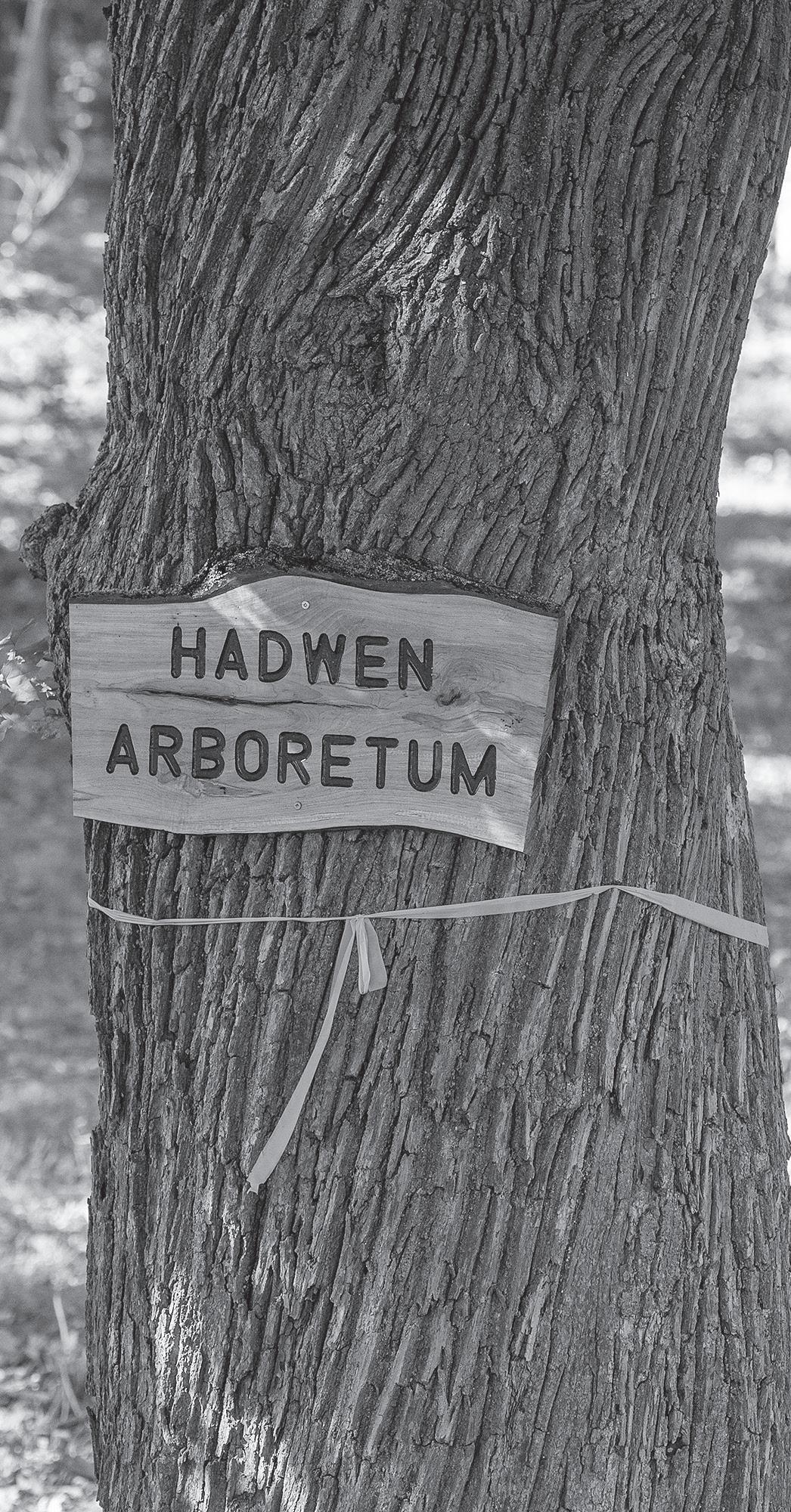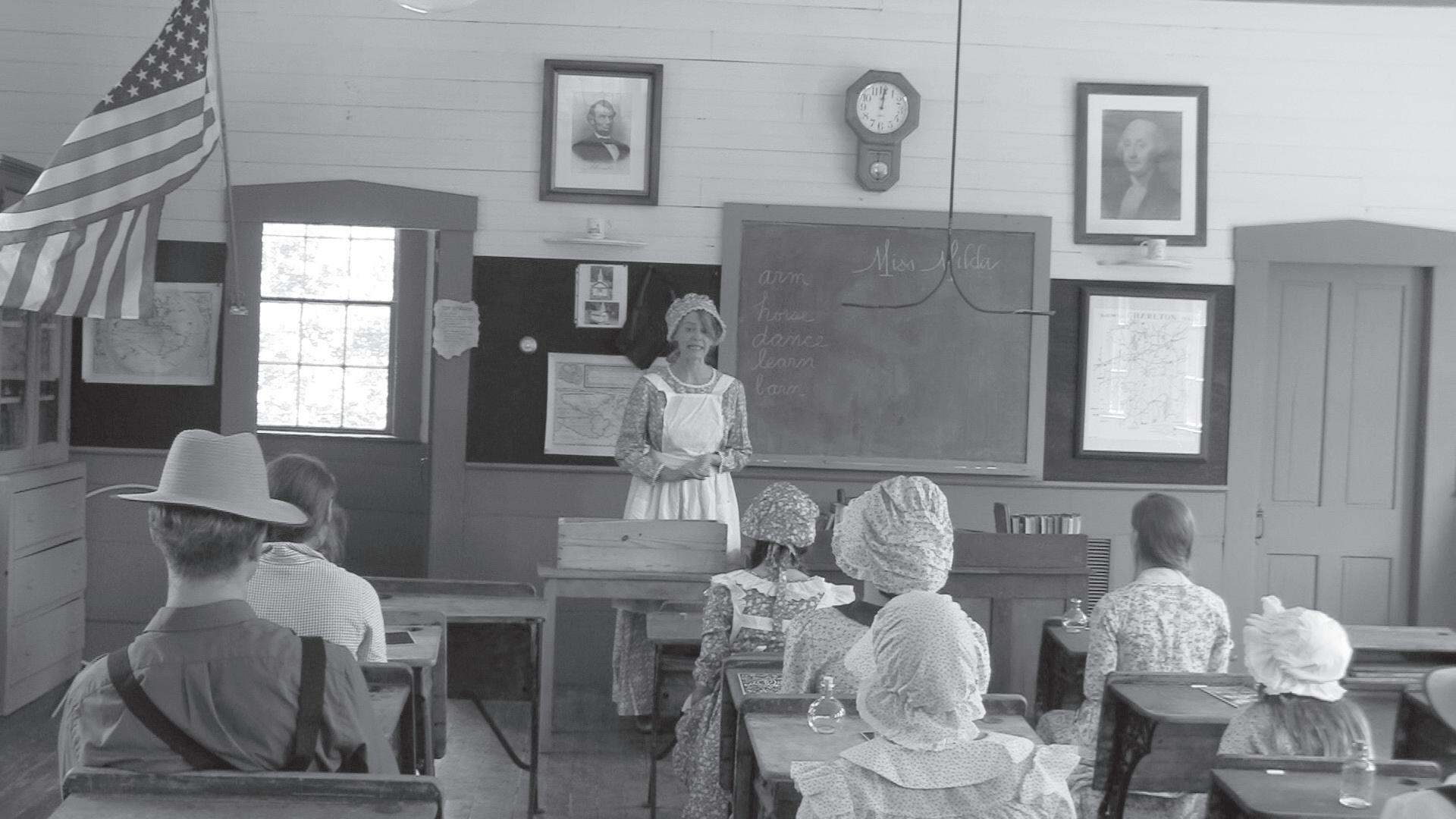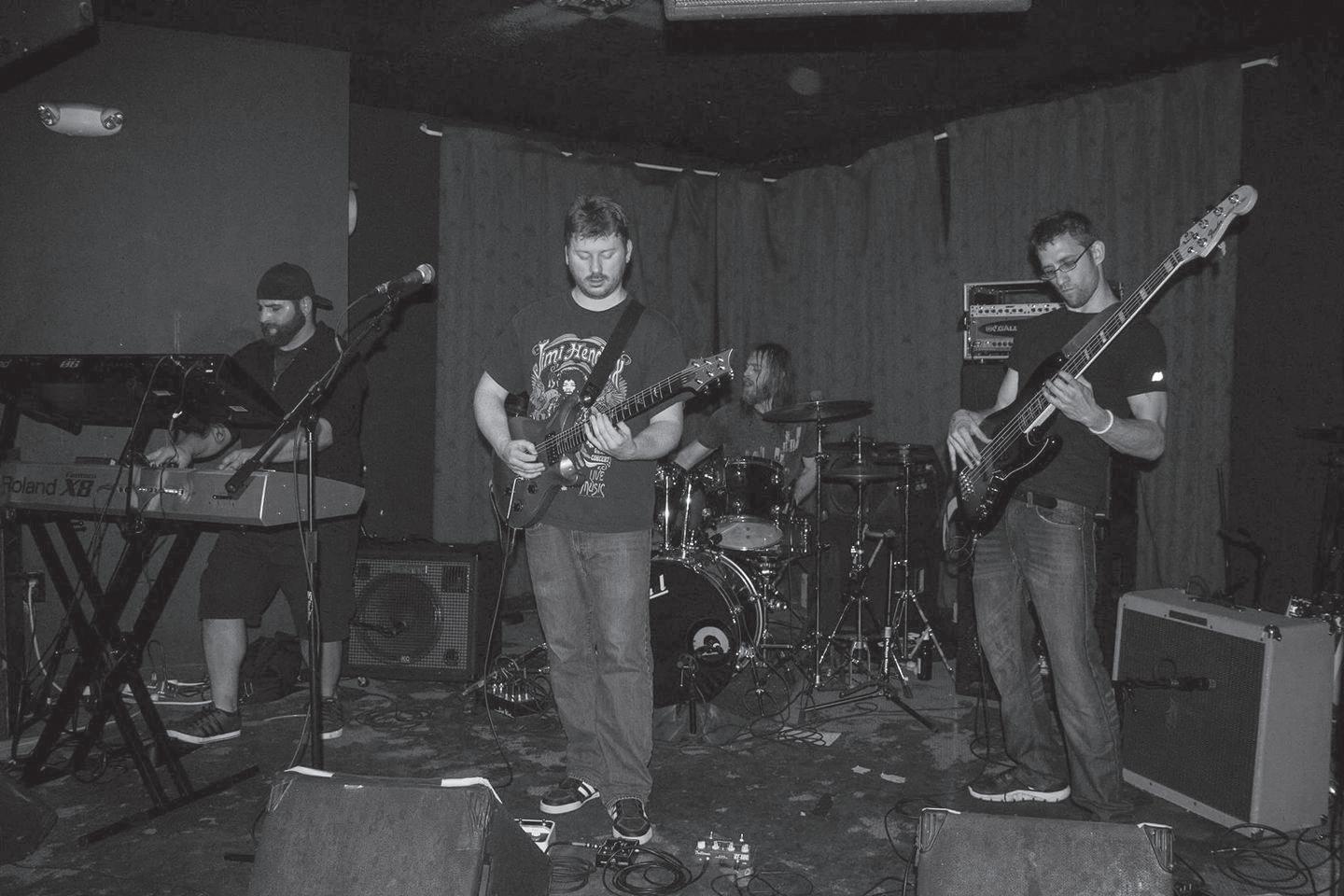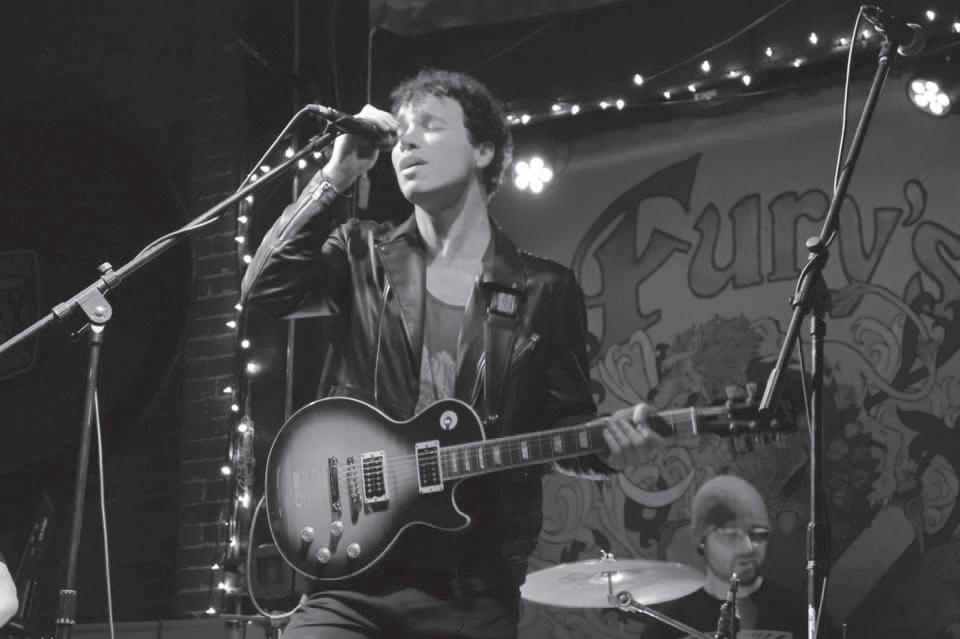
15 minute read
Featured
Holding out for a HERO
Clark University program studies the positive effects of trees in urban areas
Advertisement
VEER MUDAMBI
When we think of “green initiatives” for communities, transitioning to renewable and sustainable energy is what comes to mind. For the last several years, though, there’s been another ongoing effort to make Worcester green in a more literal sense.
The goal of Clark University’s Human-Environment Regional Observatory program, or HERO, is to study the interconnections between humans and the natural environment. While the scope is statewide, the last 10 years have seen the program redirect its focus to a more local level.
“The common thread in our work is how people understand themselves in relation to the environment,” said Professor Deborah Martin, one of HERO’s primary faculty. In Worcester, this led to working alongside the Department of Conservation and Recreation to study how to increase the city’s tree population as well as its stewardship and protection.
Every year, a cohort of students joins HERO in a full-year directed study, with an eight-week period in the summer working as paid researchers.
When the 2008 Asian longhorned beetle infestation required the removal of thousands of trees in the Worcester area, HERO studied the issue for a few years before branching out to general urban forestry. Specifically, a planting initiative for under-served communities, which acted as a pilot for the DCR’s statewide Greening the Gateway Cities program.
Gateway cities are defined by the Massachusetts Legislature as “midsize urban centers that anchor regional economies around the state,” facing “stubborn social and economic challenges” while retaining “many assets with unrealized potential.” In other words, cities with lower than average median income and higher than average renter populations, along with factors that reduce investment in public programs, let alone tree planting.
By increasing tree cover throughout the state, Greening the Gateway may not only improve quality of life, Martin said, but improve “energy efficiency from the outside in.” Lack of trees in low-income neighborhoods leads to an effect known as urban heat islands — areas of a city with a notably higher surface temperature than surrounding neighborhoods. Asphalt absorbs heat during the day and reflects it back at night, so areas don’t cool sufficiently. In more densely populated areas, planting trees will mitigate this process.
Gateway cities are also characterized by a high percentage of renters in older housing stock, which was not built with high quality insulation and energy efficiency. There is relatively lower incentive to upgrade energy systems for such housing.
Martin said that while she and her colleagues had discussed refocusing on Worcester in the last couple of years, the COVID crisis accelerated the situation requiring local field work.
In all its 21 years, the HERO program has had a field component with students traveling all over the state. Working at Clark’s Hadwen Arboretum, located about 15 minutes from campus, serves as a good alternative, said Professor John Rogan, also of the HERO program. The arboretum was donated in the 1800s by horticulturist Obidiah Hadwen and boasts a number of exotic tree species brought over from Asia.
HERO helped add more trees to the arboretum, something that hadn’t been done in 40 to 50 years, according to Rogan. HERO students have set up their own projects at Hadwen, such as the impact of mowing on species growth or quantifying the effect of canopy cover on air temperature and quality by taking air and surface temperature readings.
Once more, they teamed up with the DCR to process data from heat sensors, in order to monitor the cooling effects of trees planted during the earlier greening initiative. The silver lining for the HERO program is that COVID provided a chance to slow down and analyze existing data. From accumulated data, it was learned that trees can potentially mitigate heat islands only five years after being planted.
That is assuming, however, that new trees last that long. Planting trees is only the first step — the second is ensuring their protection and stewardship by the city. “People cut down trees without really thinking about it,” said Martin.
Above, Professor John Rogan discusses a project with students Ari Nicholson (center), and Ahna Knudsen on a trail in Clark University’s Hadwen Arboretum Below, students spread mulch on a trail in the Arboretum.

“There’s nothing in our bylaws that encourages people to work around trees.” A future area of study for HERO students is to research urban tree protection policies across the country, and what could be applied to Worcester. She said Rogan’s work around the city and at the arboretum helps people have necessary discussions about how to protect Worcester’s urban forests.
“HERO is sort of a winding road,” said Martin, discussing how the program returned to Worcester after its work in other parts of the state. “There are threads that connect in what we’ve done — coming back to Worcester has some resonance with

what we started doing in 2012 but now we’re starting to ask questions we didn’t ask before.”
This new perspective, she describes, helps them look beyond the immediate planting of new trees to how to maintain the existing city tree canopy. Doing that requires changing the attitudes of people in the city toward trees — a slight switch on HERO’s normal mission. Instead of examining Worcester’s place in nature, they must understand nature’s place in Worcester.
RICK CINCLAIR

Brookfield filmmaker hoped the thrill of ‘Red Fever’ proves contagious
RICHARD DUCKETT
Inside the walls of a compound, survivors wear homemade clothes and live without electricity and indoor plumbing. They grow their own healthy food and exercise regularly. The children attend school in a one-room schoolhouse, where they learn about Mother Savior, who built the compound to protect them from Red Fever, the disease that causes zombie-like cravings for human organs and ravaged the world.
However, a young survivor named Mariana becomes suspicious after she witnesses disturbing events. It seems as though the survivors are being drugged and brainwashed. When a new survivor, Davis, arrives with his parents, Mariana forms an alliance with him and together they seek the truth about their compound and the outside world …
What they discover may make temperatures climb in the dark thriller “Red Fever,” a short film that is scheduled to be shot this month at Old Sturbridge Village and the historic #2 Schoolhouse in Charlton with a cast of about 12.
The writer and producer is Jenifer Stockdale of Brookfield, who specializes in suspense and horror. She has adapted “Red Fever” from her short story of the same name, which will be published in an anthology in November. Charles Alan directs. Mariana will be played by 13-year-old Maggie Montville of Dudley.
While the movie “Red Fever” will stand on its own right, Stockdale is also hoping that the short might catch someone’s eye for backing as a full-length feature movie (the script for that is already written) or TV show/series.
“Everyone loves the story. A lot of people compare it to ‘The Village,’” Stockdale said of the 2004 period thriller, written, produced and directed by M. Night Shyamalan. “I say it’s like ‘The Village’ only good. I have a much better story line.”
“Red Fever” has “four or five twists, and the twist at the end is pretty big,” she said. At first you see what looks like Old Sturbridge Village surrounded by a fence, and so you might think the film is set in the 1700s or 1800s, Stockdale said. Then “you see modern people coming through and you think it’s kind of a cult. It twists

you a few times. In the feature-length and TV version there are even more twists.”
“She (Mariana) believes she’s being protected but after a while she notices things that are a little bit off “ Montville said of her character. “I think she has a soft side and a tough side. She’s very suspicious and notices a lot more things. She explores.”
Preparations for shooting “Red Fever” were in full swing recently when Stockdale talked on the phone about what was going on.
“We’re having a blast right now doing all the pre-production. We picked up a 10-foot chain link fence and razor wire on top of it,” Stockdale said. “It’s going to look pretty serious. Never a dull moment.”
She had also just bought four dummies that she is going to dress up for a scene where people are being hypnotized. “With COVID you can only have so many people in the room. We can’t have any extras on the set. Everyone has to be tested, so I bought Halloween dummies. It looks like the room is full. It worked out well. They are hypnotized, so they’re not supposed to be moving anyway.”
Stockdale and Alan held auditions by Zoom and cast 12 actors. “I’m in as a cameo (uncredited),” Stockdale said.
Maggie Montville, top left, stars in “Red Fever,” a short film by Jenifer Stockdale, bottom left. Above, a scene from the film, shot in the #2 Schoolhouse in Charlton.

SUBMITTED PHOTOS
“Twelve actors and four dummies.”
Stockdale sounded cheerful, but as she indicated, filming during a pandemic is no easy business and she takes her responsibilities seriously. “I’m following all the rules. I do not want to be in the paper with a COVID outbreak or someone dying,” she said.
COVID testing also figured to be expensive, contributing to push the “Red Fever” budget to about $20,000 from original estimates of $14,000 to $15,000, Stockdale said. The film has an Indiegogo campaign at https:// www.indiegogo.com/projects/redfever-a-short-film#/.
At the time of the interview, Stockdale joked that “Indiegogo is not going that fast.”
Still, the locations of Old Sturbridge Village and Charlton are ideal for “Red Fever,” Stockdale said. The #2 Schoolhouse has chairs and desks that rise in height across each row. “It looks really cool.” A pre-shoot was done in the summer, and there are two days planned for filming on Oct. 18 and 19, with exterior shots at Old Sturbridge Village and interior filming at #2 Schoolhouse in Charlton. There is also the possibility of filming in the Rider Tavern in Charlton.
“We should be able to get it done in two days,” Stockdale said. The script is 23 pages long, and “Red Fever” will be under 30 minutes in length.
Montville was being interviewed the same day the cast had had its first reading via Zoom. A student at Dudley Middle School, she said she began taking acting classes around the age of 7. She’s acted with Stageloft Repertory Theater in Sturbridge, the Bradley Playhouse in Putnam, Connecticut, and the Pasture Bedtime Players in Charlton, and been in about 12 movies. She was recently seen in the short film “Boiler Pot” and the Netflix comedy “The Sleepover.”
Asked if she has a preference in terms of stage or film, Montville said she likes both. “Honestly, I can’t even choose.”
However, “Red Fever” is the first time she’s been cast in a lead role in a movie. “It’s very exciting,” she said.
And she knows that acting is where she would like to see her future. “I would love to do that. This is my favorite thing to do — it’s kind of like a hard business but I’m hoping that I get to go far.”
People have been rooting for her.
For friends, “I think it’s kind of confusing for them with all the things I do, but they’re really supportive,” Montville said
Stockdale was a 4-year-old living on Martha’s Vineyard when she was cast in a small role for a movie that was filming there — “Jaws.”
“I grew up loving movies,” she said. At home she would write plays and stage them in her basement with fellow neighborhood children. “If I had had a video camera, I would have probably made movies, but I’m doing that now,” she said.
Stockdale wrote plays through college and had one staged by Cape Cod Community College at an arts festival weekend. “A few years I later stated writing screenplays.”
She began getting involved with 48 Hours Film Project competitions in Boston, Rhode Island and Connecticut, and formed her own film production company, Cyclops-Snowman Productions, LLC, which has put out a couple of shorts including the dark comedy “The Sky is Falling.”
Stockdale has been working with Charles Alan, whose background includes stage directing with the the Provincetown Theater, “so he had a bit of a learning curve (to movies) but he absolutely excels,” Stockdale said.
“We were working together under high-stress activity to get the (48 Hours) movies done. He’s a good guy. I trust him with my baby, and this movie (‘Red Fever’) is my baby.”
Starlite ventures to Middle Earth for outdoor event
ROBERT DUGUAY
Music venues all over the world are finding different ways to stay in business during this era of COVID-19. Some still have their doors shut but they’ve started GoFundMe pages for people to donate and keep their business afloat. Others have resorted to socially distanced outdoor shows, doing curbside pickup of food, canned beer and pre-made cocktails and livestreaming bands from their stage in a near empty room. The folks at starlite gallery on 39 Hamilton St. in Southbridge have always done things a little bit differently and this trend continues with what they have going on at 4 p.m. Oct. 11. It’s a Middle Earth-themed show with live bands, Tolkien-inspired cocktails, an art auction, a raffle and a lot more in an outdoor setting.
The idea for the theme and the event came from starlite’s owner Demetri Kasperson. He pitched it to

his employees and a couple of acts who have performed regularly at the establishment and then it became a reality when it was announced last month.
“I originally pitched the Middle SUBMITTED PHOTO Earth theme to our staff and Mike Moore of the band Fire in the Field and Mat Jacobs of the band Sacred Lake,” Kasperson says. “They are both Massachusetts-based bands who have played regularly at starlite. I grew up as an avid J.R.R. Tolkien reader and have always enjoyed his various influences in rock music.
I thought it would be a fun way to celebrate both the author, as well as classic and local artists in an outdoor setting where we could follow the
COVID-19 pandemic restrictions enacted by the state. The event is limited to 40 people with advanced tickets, plus staff, and we will be serving catered food to socially distanced patrons.”
The music portion of the evening will be kicked off with a performance of Tolkien poems and songs recited by Patrick Yeo as Tom Bombadil.
Then The Middle Earth Band, consisting of Moore, his bandmate Jared
Graham, Joel Rines from Jediah and
Jay Frigoletto from The Diplomats Of
Funk will be performing with special guests Lizzie Wheeler, Gracie Day and Cody Peck. Both Moore and
Graham are excited to be a part of the unique show and they’re grateful for starlite’s role in the development of their band.
Moore talks about how much the venue and its staff means to him.
“Aside from the general aesthetic, which is totally singular, the true fostering of what someone might call a scene is built into its operation. We always get into a really experimental vibe playing there, so much so that the title track of our 2020 album, “Resurrect,” was written on the starlite stage in a moment of improvisation. We were actually about to shoot the music video there for the studio track but then the pandemic hit. Needless to say, playing starlite always feels akin to coming home after a long journey. I feel quite lucky to have that lifeline in this crazy business so when the opportunity to do what I do best to help out with The Middle Earth Fundraiser was a no-brainer.”
“When you walk into starlite, you get a sense of comfort right away,” Graham adds. “Demetri and the staff are helpful and cool, the bar area has a great vibe and there’s a big live room with a projector and quality sound, which is not always the case in clubs this size. After playing there a few times and talking with Demetri, I could tell that he was in this for the love of the arts. Starlite is a venue that has not just welcomed musicians of all styles to come together and perform, but also artists of all disciplines. My partner had an art show installed in starlite that showcased her sculpture, paintings and drawings when COVID-19 hit and venues were forced to close. The arts community needs places like starlite, small, intimate galleries where musicians and artists are welcomed and encouraged to leave it all on the stage.”
Along with The Middle Earth Band, Hopkinton psychedelic funk act Sacred Lake will be closing the night as The Ringwraiths with an


instrumental set. Much like Moore and Graham, they’re also grateful for starlite being a welcoming place for artists and musicians while also treating them with value and appreciation.
“For Sacred Lake, starlite has been a bastion of humanity in a sometimes thankless and ruthless industry,” keyboardist TJ Guzzetti talks about the venue. “Unlike many venue owners and promoters, Demetri actually spends the time to get to know the bands he features at starlite. He has frequently watched our entire set and given constructive feedback and endearing comments. Additionally, starlite has always treated our band like guests of honor and not just another act to fill seats. Demetri has made posters and personally promoted the gigs at his venue, which is something many bar owners often leave to the bands.
“We were honored to be asked to play starlite’s Middle Earth fundraiser event when we were approached about it,” he adds. “Not only is this an awesome theme and an opportunity to play live, but it’s also an opportunity to do it for a special purpose.”
All proceeds from the show will go toward starlite’s effort to pay for the many accumulated costs it has accrued over the past few months. There will also be an online donation link and a virtual livestream available for those who can’t make it but would still like to help in some way. Follow the art gallery and music venue’s Facebook page at facebook. com/starlitegallery. OCTOBER 8









